Copro-FB Coprophagia Deterrent Chew Tabs are for use in dogs over the age of 12 weeks. Helps deter dogs from consuming their own stool or other dogs’ stool.
This dog supplement contains powerful ingredients that may help prevent dogs from eating their stool. Formulated with parsley leaf and chamomile to effectively help make stools less appealing.
Coprophagia or stool eating is quite common in dogs. Changing the diet, cutting out difficult to digest grains, and adding additional digestive enzymes might also be a benefit to solving this problem. A good dog food and limiting table scraps can also help.
Medical and physical reasons for coprophagia in dogs:
- Intestinal parasites – The parasites are feeding on the dog’s nutrients
- Pancreatic insufficiency – This is a disorder where the pancreas is not producing digestive enzymes; the food being ingested is not broken down nor are the nutrients being absorbed (the dog is starving)
- Underfed – Not feeding the dog the right amount of food
- Poor quality diet – Malnourished
- Taste – Cat feces may taste good to a dog
- Dogs will eat their puppies’ poop to clean the den; this is a normal behavior in dogs
- Prescription medications can make a dog very hungry
Behavioral reasons for coprophagia in dogs:
- An abused dog that was not being fed (got used to eating his own feces)
- Puppies that were neglected and overcrowded causing anxiety issues
- Puppy wants to seek the pet parent’s attention
- Boredom (no activities or playtime)
- Kenneled/isolated for an extended amount of time
Monosodium Glutamate (MSG): Will make the dog’s feces taste bad discouraging the dog from eating their own stool.
Oleoresin Capsicum, a lachrymatory agent, which deters a puppy or dog from eating its own stool by causing a mild irritation to the eyes and a mild burning sensation if the stool is eaten.
Alpha-Amylase, which breaks down starches, improving the animal’s digestive performance. When the active ingredients are ingested by your pet they become activated in the small intestine and will to produce a stool that is unpalatable to the offending dog .
Pancreatic enzyme blend (Alpha-Amylase, Lipase, Cellulase, Protease)will help in pancreatic insufficiency. Which is one of the main cause in Coprophagia.
Parsley is a well known remedy for bad breath—for both people and dogs alike. It’s the chlorophyll in parsley that’s said to do the trick. While there’s some disagreement about how long the deodorizing effects last, adding a little parsley to your pup’s diet is a safe and natural way to combat stinky dog mouth.
Does your dog enjoy snacking on poo?
If the answer is yes, then it’s probably at the top of the list of behaviours you want to stop as soon as possible. The good news is, The Dog Doctors can help you break this common habit, known as Coprophagia.
While it’s normal for new mothers to lick their puppies to urge a bowel movement, and clean up by eating the faeces, this should only last for about 3 weeks after birth. However, this often continues into older years with 1 in 4 adult dogs opting to consume poo and 1 in 6 considered “serious” stool eaters by a survey conducted by the University of California.
Why is my dog eating poo?
There are numerous theories which attempt to explain Coprophagia, and between veterinarians and animal behaviorists a conclusion is still to be made, however these theories fall into two broad categories – behavioural or medical.
Behavioural
It is instinctual for dogs to explore through both their smell and taste buds, so as far as some dogs are considered, poo ticks the boxes. Consider it a mouthful of useful information to them, as it tells them about the animal that both produced it and what their diet was like.
Evolution is also believed to play a part in the sense that a dog’s ancestor the wolf is both predator and food scavenger. Whilst they will primarily enjoy eating the carcasses of other animals, they will eat just about anything to survive – from plants to garbage and finally faeces!
Other forms of behavioural coprophagia are linked to anxiety and attention seeking from their owners.
Medical
Dogs will receive some nutritional value from the undigested matter. A dog who feels they are lacking nutritional value from their diet will commonly look to eat poo, essentially a crack at digesting nutrients the second time round. This is often the case when dogs have an enzyme deficiency.
Other kinds of deficiencies such as abnormal nutrient absorption will also lead to increased appetite from underlying medical issues such as diabetes, Cushing’s syndrome, hyperthyroidism (overactive thyroid) or even certain drug treatments (steroids). Other underlying medical issues such as exocrine pancreatic insufficiency (EPI) is a condition in which the pancreas doesn’t produce enough digestive enzymes. If you suspect any of the underlying health issues above, you should contact your veterinarian.
How can I help my dog?
While supervising and training your dog may be one option, do you really have the time? The good news is, there is a much quicker and effective way. The Copro-FB chewable tablets can bring results within two to four weeks. They are easily administered small size chew tab which your dog will love.
Containing a special combination of all natural ingredients the chews are veterinary formulated specifically to deter your dog from eating poop and provide digestive support.
- Monosodium Glutamate (MSG): Will make the dog’s feces taste bad discouraging the dog from eating their own stool.
- Oleoresin Capsicum, a lachrymatory agent, which deters a puppy or dog from eating its own stool by causing a mild irritation to the eyes and a mild burning sensation if the stool is eaten.
- Proprietary Enzyme Blend
These easy-to eat soft chews also contain a Proprietary Enzyme Blend. These are digestive enzymes, known as nature’s catalysts, as they are crucial for breaking down the food in your pup’s gut. Enzymatic breakdown plays a key role in the digestive process. The enzymes in The Dog Doctors Coprophagia Soft Chews will help optimise absorption of the nutrients already available in the dog’s food, which results in no stool eating as the body is no longer lacking any important nutrients.
Amylase, Protease and Lipase break down carbohydrates, proteins, and fats respectively. But the power of these hardy enzymes extends far beyond just helping absorption from your dog’s last meal. Protease is also essential for cell division, blood clotting, immune function and other vital processes.
Bacillus Coagulans is a probiotic bacterium which optimizes a healthy gut and aids in nutrient absorption.
Fructooligosaccharides support the gastrointestinal tract by helping to balance the number of beneficial bacteria such as Lactobacillus and Bifidobacterium. This prebiotic will also inhibit the growth of bad bacteria such as E Coli and Clostridium which cause diarrhoea in dogs.
- Parsley
This plant is considered to be a ‘super herb’ when it comes to pet nutrition. It is great in helping to reduce ‘doggy breath’ due to its high levels of chlorophyll which has antibacterial and deodorising properties. This alone is enough reason to include parsley in your dog’s supplements, but it has many other valuable benefits. Rich in Vitamin A, C and K, it also supports the immune system, promotes good vision, maintains healthy blood clotting and liver health, and has anti-inflammatory properties.
- Chamomile
This daisy-like plant is a natural relaxing agent which binds to the same cell receptors as tranquilisers. It helps to regulate peristalsis in the bowel and is often used in the treatment of dogs with diarrhoea and constipation. It is also great at relieving gastric or abdominal discomfort due to gas or spasms. Chamomile also contains anti-bacterial and anti-fungicidal properties which means it is great at fighting common pathogens.


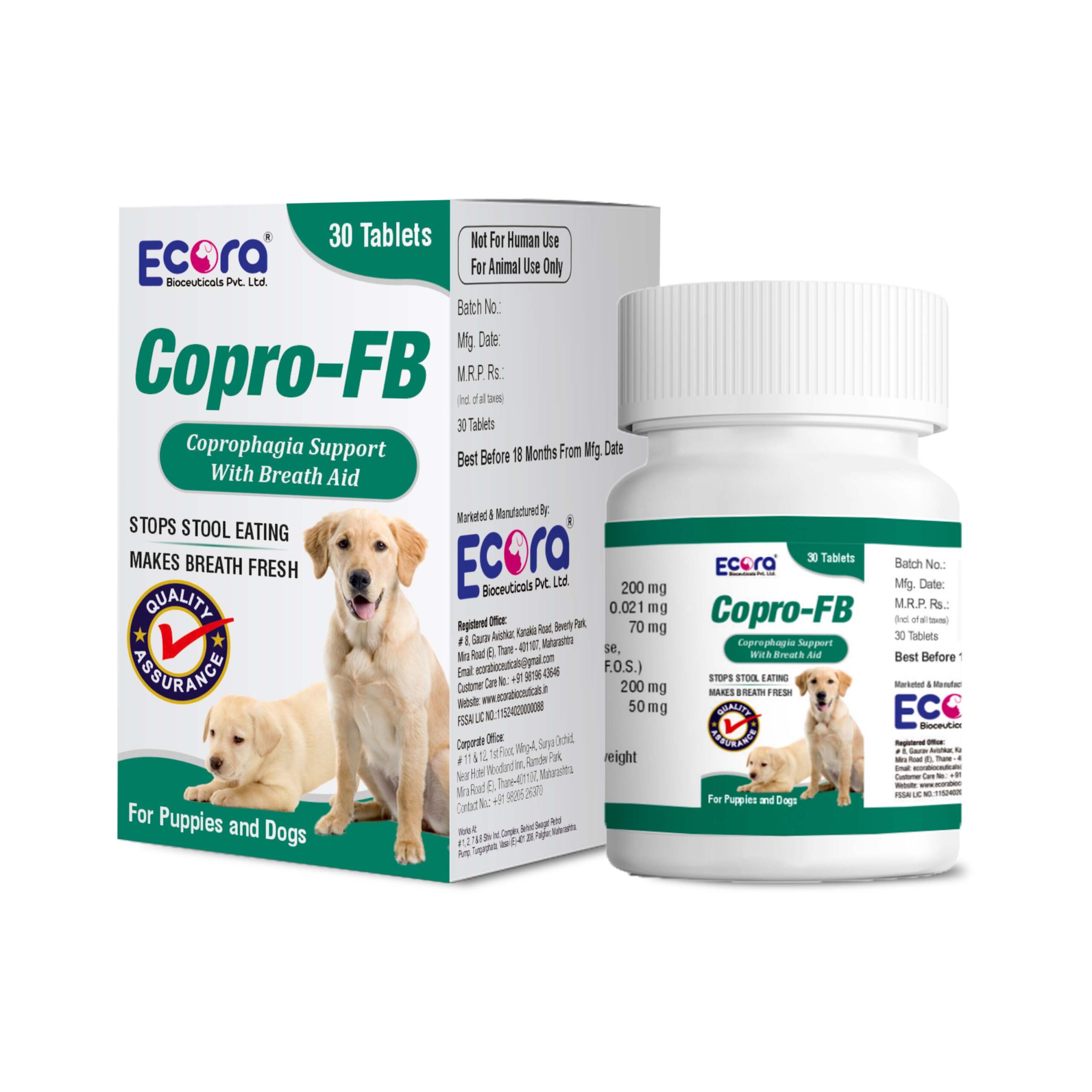
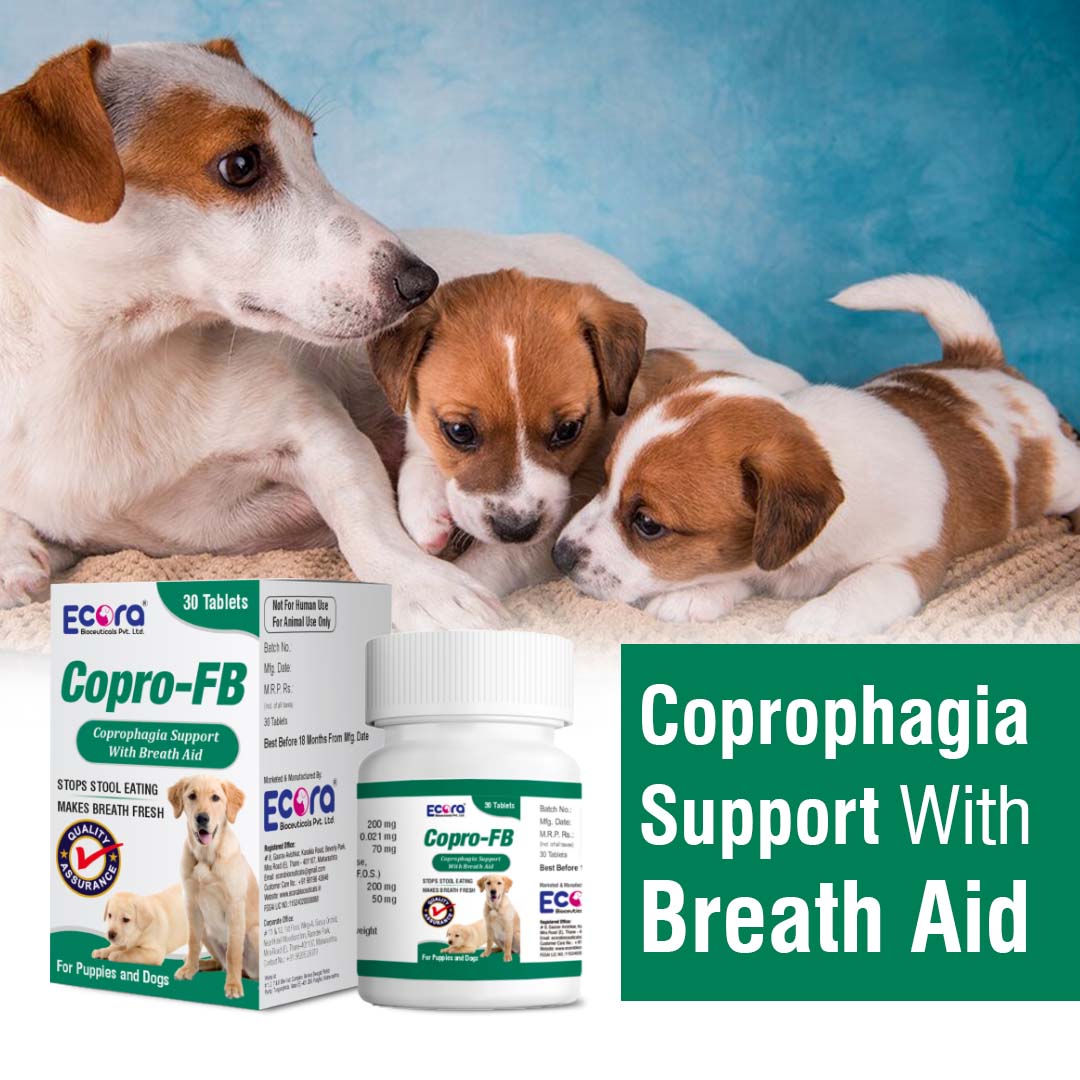
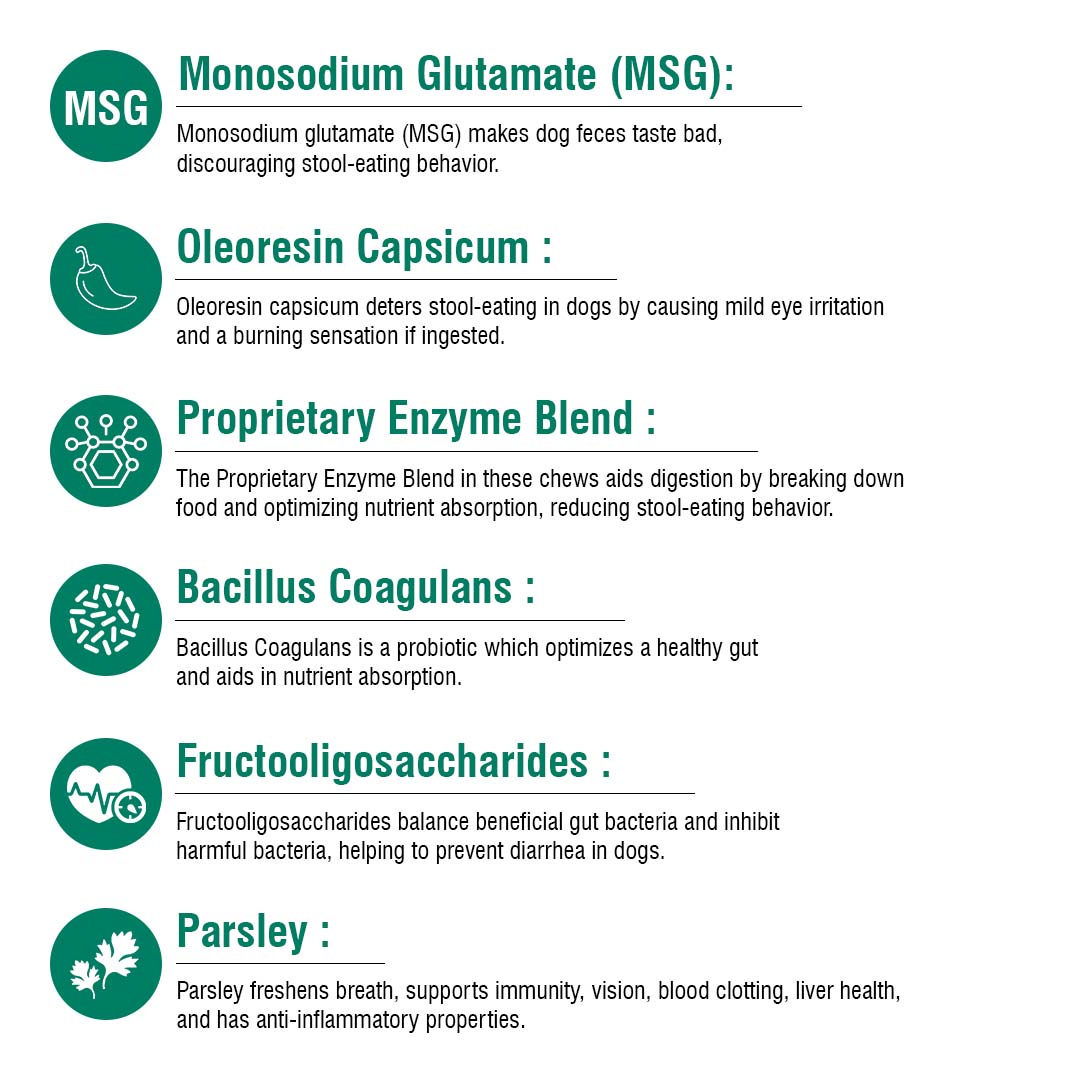
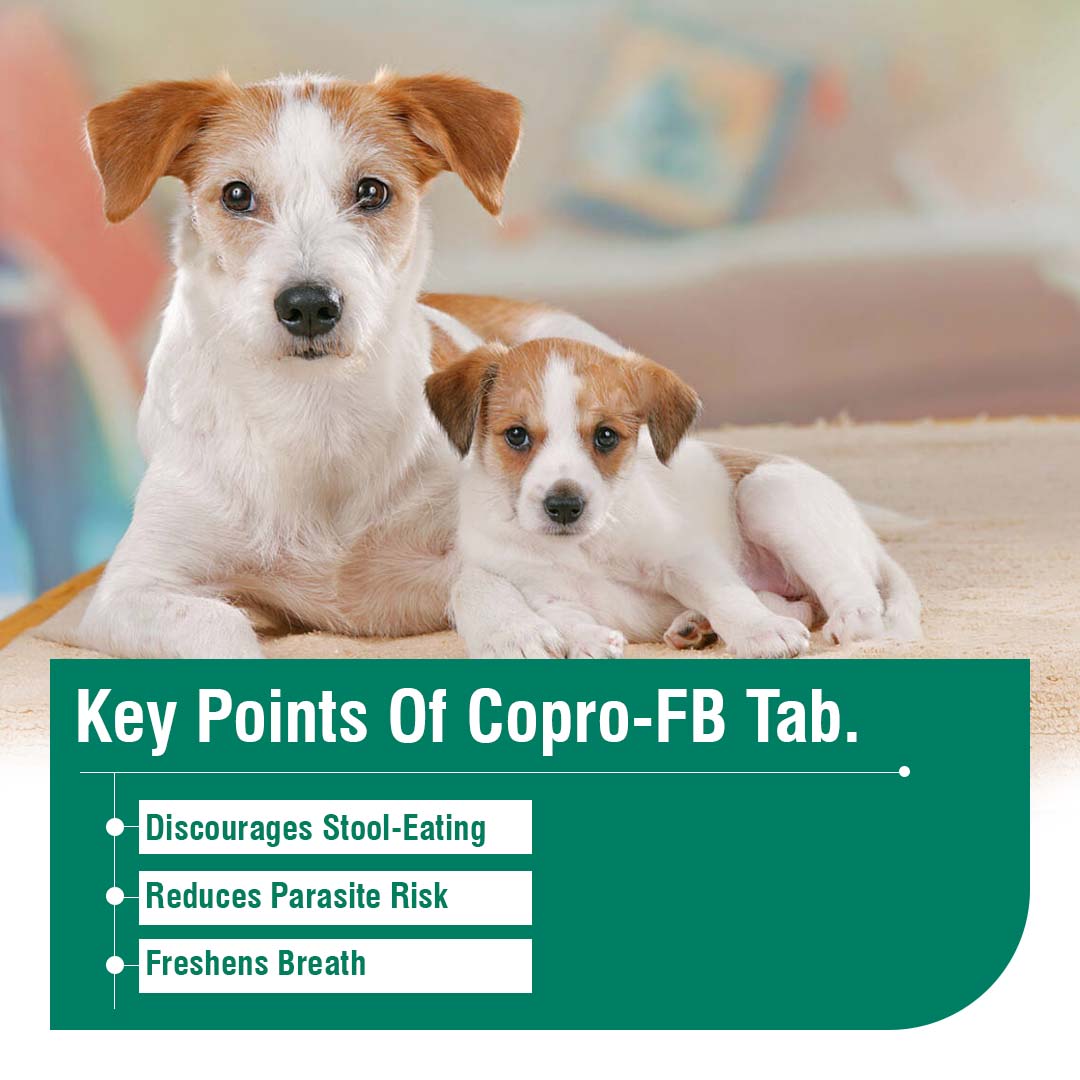
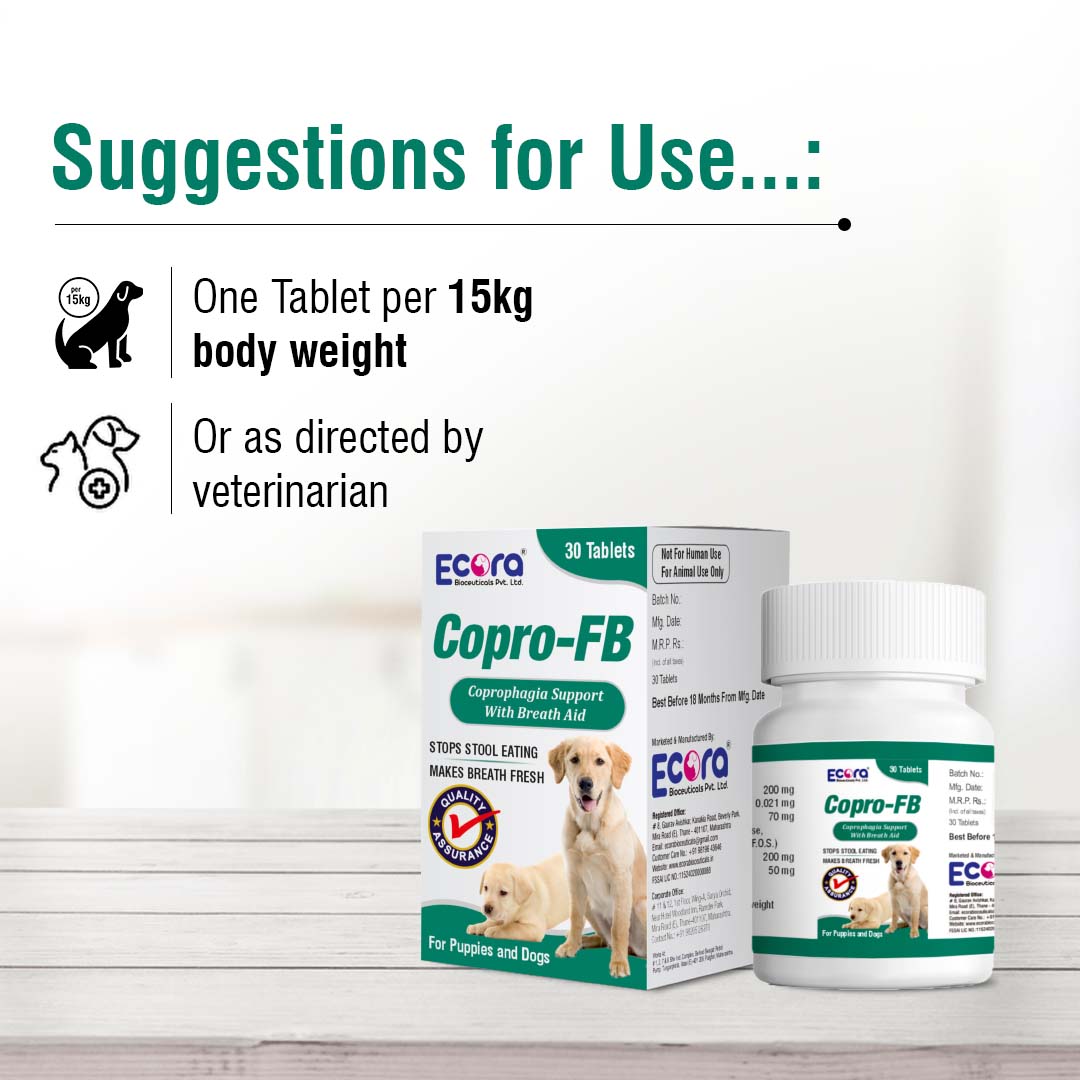
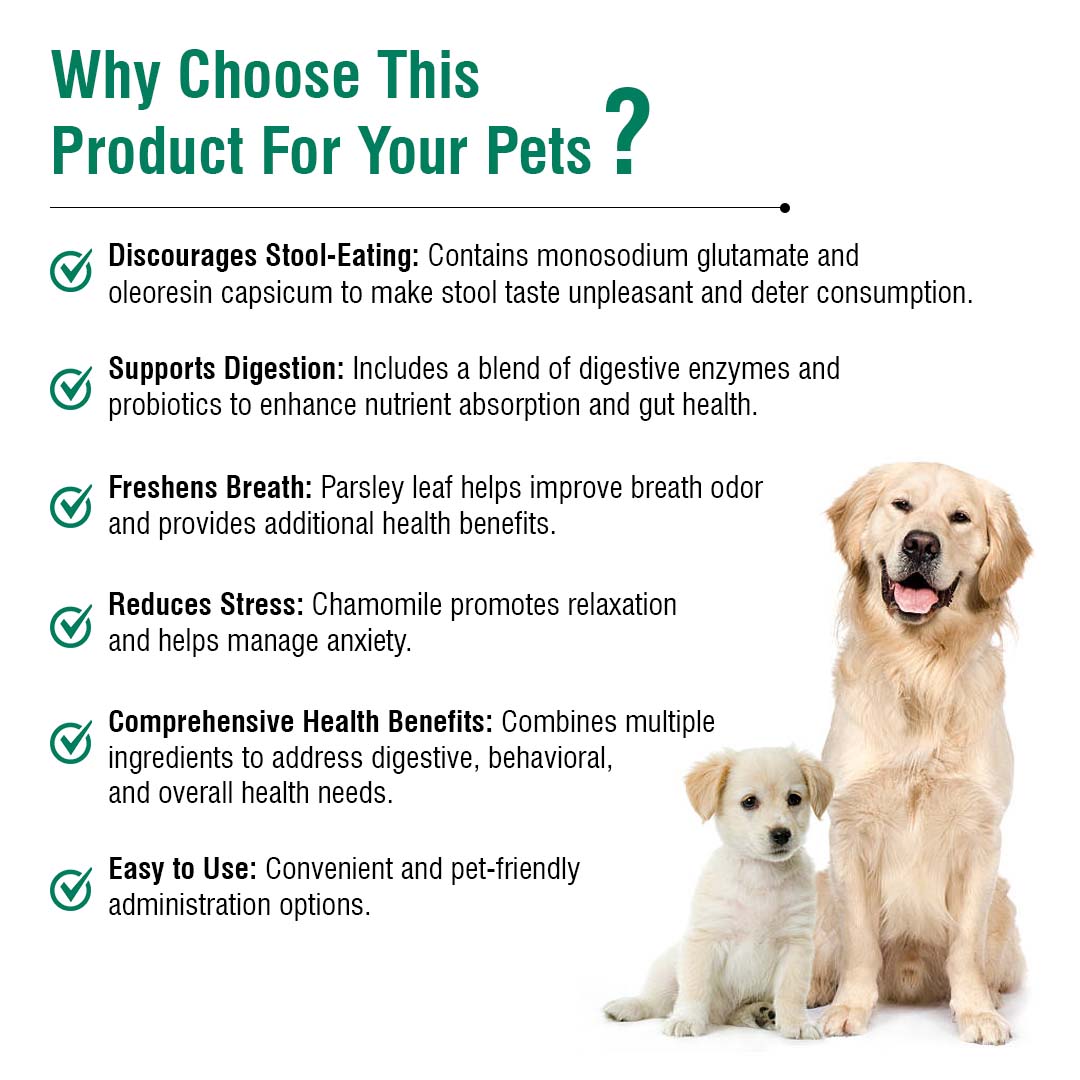
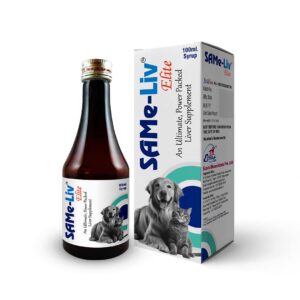

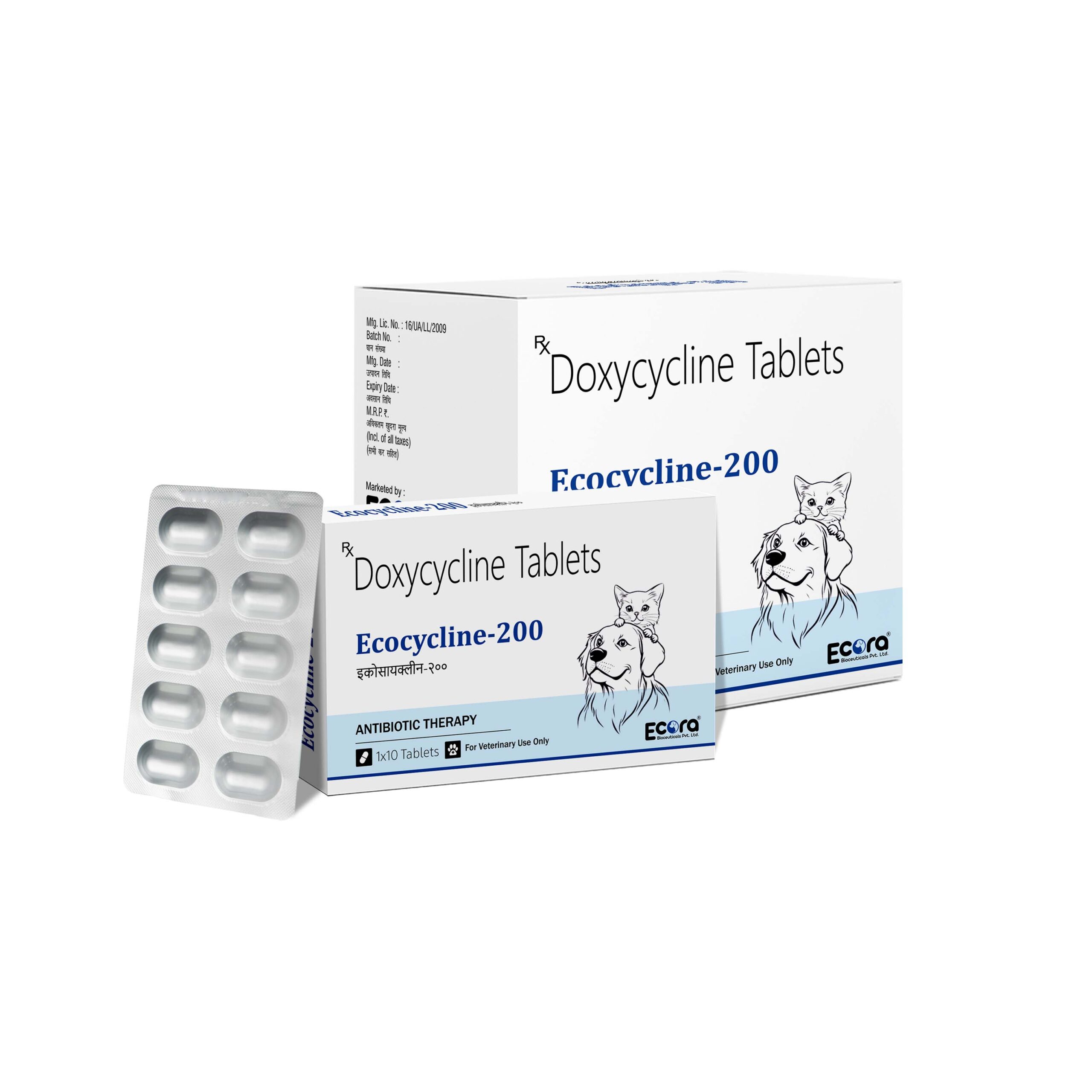
Reviews
There are no reviews yet.